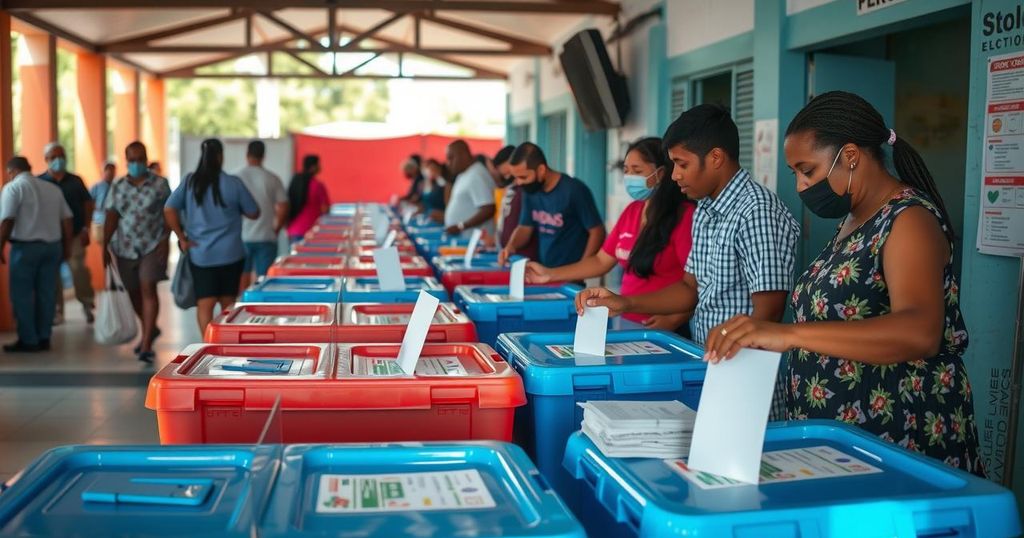Comoros Legislative Elections: Controversy Shadows Voting Process
Comoros held legislative elections amid controversy as opposition groups boycotted the process they deemed lacking in transparency. President Azali’s son, Nour El-Fath Azali, is a candidate while organization issues and allegations of electoral malpractice persist, raising alarms over the legitimacy of the vote.
The Indian Ocean nation of Comoros conducted legislative elections on Sunday, despite notable opposition groups opting to boycott what they claimed was an opaque voting process. Nour El-Fath Azali, the eldest son of President Azali Assoumani, is contesting for a parliamentary position in a district near the capital, Moroni. Reports indicated that several polling locations began voting late due to delays in receiving electoral supplies, raising concerns about the efficiency and organization of the electoral proceedings.
Observers noted an alarming lack of privacy in the voting booths. One voting setup involved two panels around a table to form an improvised booth, while another merely consisted of a simple box placed on a chair, severely compromising the confidentiality of voter choices. President Azali expressed his gratitude for the peaceful atmosphere surrounding the election campaign, irrespective of the inclement weather.
Despite several opposition candidates participating in a bid to prevent a repeat of the 2020 legislative elections’ boycott, the ruling Convention for the Renewal of the Comoros party, the CRC, is widely anticipated to retain its dominance in the parliament. A total of 33 parliamentary seats are contested by approximately 340,000 registered voters, with a second round of voting slated for February 16. Following allegations of electoral fraud and violence following his January 2024 victory, President Azali, who secured 57 percent of the vote allowing him to remain in power until 2029, faces ongoing criticism from his opponents regarding the integrity of the electoral processes.
The political landscape in Comoros has been marked by tension and accusations of electoral malpractice, particularly following the controversial re-election of President Azali Assoumani in early 2024. After ruling through a military coup in 1999, his administration has faced persistent allegations of undemocratic practices. The opposition groups’ boycott of past elections has led to significant concerns over the legitimacy of the voting processes and the resulting representation in parliament. The current elections, featuring President Azali’s son as a prominent candidate, reflect ongoing disputes over governance and electoral integrity in this small island nation.
In conclusion, the legislative elections in Comoros have underscored significant concerns regarding electoral transparency and fairness. The presence of opposition candidates attempting to participate indicates a desire for a more representative government, despite the prevailing dominance expected for the ruling CRC. Ongoing allegations of fraud and organizational issues in the voting process highlight the challenges Comoros faces in achieving a democratic electoral system that reflects the will of its citizens.
Original Source: www.arabnews.com




Post Comment